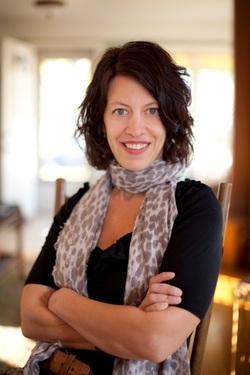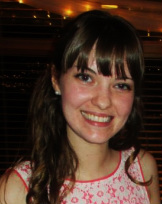ASSAY: A JOURNAL OF NONFICTION STUDIES
1.1
1.1
|
I first met Melanie Hoffert during an author visit while in my last year of college, at Concordia College in Moorhead, Minnesota. I was immediately drawn in to her genuine personality and insightful writing tips and conversation, as well as the fact she was a Concordia alum. She had just published her first book, Prairie Silence, about growing up on a North Dakota farm, learning from the secrets she kept, and coming home years later to confront those silences. This book went on to win the 2014 Minnesota Book Award in the Memoir and Creative Nonfiction category. I wanted to interview Hoffert to share those meaningful discoveries about herself and her writing that I knew every nonfictionist could relate to.
What prompted you to write this memoir and feel that you had something special or relatable to say? Well, at first I didn’t set out to write a memoir. I wrote, over many years, just for the love of writing. But after time I started to see that my many essays could hold together. And over more time I started to realize that I had a story to tell. One hurdle I had as I kept writing was to believe that I had the right to write. I mean, I hadn’t published a book so I felt intimidated at times. However, there was something within me that knew I had an experience that others could relate to. At one point, over the many years that I wrote, I decided to embrace my right to write. If I didn’t, I knew I would continue to make excuses to avoid what I needed to do. So, on a hiking trip in the Grand Canyon I came up with a mantra that I repeated over and over in my head. The mantra was, “I am a writer. My days are filled with mystery, beauty, love, and nature.” Once I started to repeat that to myself, I could more comfortably make room for writing in my life because I started to embody the truth that we all have the right to tell our stories if we choose. Did you ever struggle with convincing yourself or publishers that these words hold meaning for everyone? That it's not just a book for lesbians, farmers, writers, or North Dakotans? That your story deserved to be told? There was many times where I felt insecure about whether or not my book would find its way into the world. After I published my first piece in a literary journal, a literary agent from New York contacted me saying that he thought that I could write a book. At the time, I had very little material. But out of excitement, I pulled together all I could gather and sent it to him. Not surprisingly, since I wasn’t really prepared, I ended up getting a rejection call from that agent’s partner. The partner told me that he wasn’t sure who would be interested in a book about North Dakota. I could have stopped writing right then, but somewhere in my bones I knew that others would related to the discussion of rural outmigration. I knew that other people carried a silence, like I did, when they returned to their childhood homes. Deep down I knew that I had something to say that would resonate with others. Even so, I had to fight many layers of insecurity to keep writing. About four years after that rejection, I had a real draft of the book. And, thankfully, I found a different agent who was thrilled with the book. How did you gather the courage to tell your story--the good, the bad, the confusing, the humbling, the truth-- and put all the details on the page for the world to read? The funny thing is I’m not sure that I ever gained the courage. When the book came out I was terrified about what people would think. I waited as each of my family members read it, hoping they wouldn’t be upset. I braced myself with each review, interview, or Facebook post about the book. I think the thing that helped me to publish, despite my lack of courage, was that I was able to separate myself from the book on some level. The book was an expression, art, not necessarily me, though of course everything I wrote is true. But I think sometimes we don’t have a choice when we have a story that we need to tell. And despite how uncomfortable it is we need to keep writing. Over time I got comfortable with the story circulating in the world, particularly when I started to hear from so many people who could relate to my story. I learned a lot about opening myself up and telling my truth. Were there moments or people you considered leaving out? How did you balance truth with still being a nice Mid-Westerner? As a writer, do you think there is a line that should not be crossed when writing about people you know? Yes, as a writer you are always making choices about what stays and goes-- what serves a piece and what is distracting or just writing “fat.” For me, I didn’t want to tell a story that would purposefully make anyone feel attacked or judged or uncomfortable. Though, at the same time, there were very personal details that I wasn’t all that excited to have certain people read (who wants their grandma to read about one’s first sexual experience). But, back to the concept of writing as art—sometimes I think what we need to say is bigger than us. The title is so fitting and a great term for how you felt for a long time. How and when did you come up with the name Prairie Silence? Honestly, the book had a different working title for years. At first I thought the book was going to be The Silent Land. But after my editor in Beacon Press read it in full, she insisted that “Prairie Silence” was more fitting. I’m glad she did, because I think she’s right. Prairie Silence captures both the landscape of North Dakota and the silence I write about in my life and in the lives of the people from back home. What was your process for writing Prairie Silence? Since you didn’t set out to write a book, what kind of decisions did you make concerning time as you pieced together different essays into a longer form? I wrote for years about the topics in the book: silence, coming out (or not) to my family, my yearning to return to the gravel roads of North Dakota, and about how I’ve reconciled my childhood faith with that of my adulthood. For a long time, I just wrote because I loved to do so. Once I realized I was actually working on a book, the book took dozens of shapes as I tried to figure out how to pull it into a unified story. And it was hard. I used to beg my writing teachers to help me understand how to structure a book. It wasn’t until I went home to experience harvest and write about it, that it occurred to me that I could rotate chapters between coming of age, or the past, and my adult perspective, which was told through the narrative about my trip home. There is a lot we can all learn about good writing, but in the end there are not a lot of hard and fast rules. This is both freeing and infuriating. It would be so nice to follow a formula and birth a book. However, because it isn’t that easy to write, I think that is what makes writing and reading so magical. Even after publishing a book, the only way I know how to make the best craft decisions is to keep writing—a lot—and to allow decisions about voice and tone and structure and time to be revealed through the process. |
Click here to download a printable PDF.
|
Melanie Hoffert is the author of the memoir Prairie Silence, the winner of the 2014 Minnesota Book Award in the Memoir and Creative Nonfiction category. Hoffert grew up on a farm near Wyndmere, North Dakota where she spent her childhood meandering gravel roads and listening to farmers at church potlucks. She received her undergrad at Concordia College in Moorhead, MN where she graduated with a major in English Writing. She also has an MFA in creative writing from Hamline University, where she received the Outstanding Creative Nonfiction Thesis Award. Her essay Going Home won the Creative Nonfiction Award from The Baltimore Review; additionally,The Allure of Grain Trucks was selected as a finalist for the Writers at Work Fellowship Competition and also won theNew Millennium Writings Creative Nonfiction Award. The Loft Literary Center selected her as a finalist for the Loft Mentor Series twice. Her work has also appeared in Muse & Stone, The Mochila Review,Ascent, The Huffington Post, and more.
|
|
Lisa Streckert recently graduated from Concordia College in Moorhead, MN with a BA in Music and English Literature. She began writing nonfiction essays after a semester abroad in Liverpool, England. Currently, she is working on essays exploring the Scouse accent, living in the land of the Beatles, and the strange bond among tourists on a Sound of Music tour bus in Salzburg, Austria. She is Assay's Social Media Editor.
|


